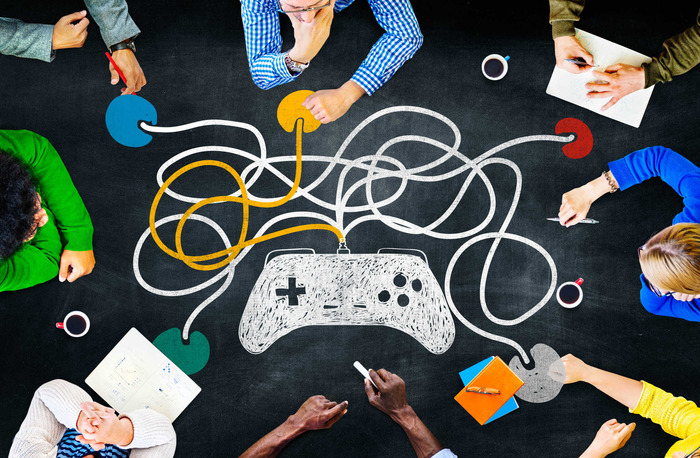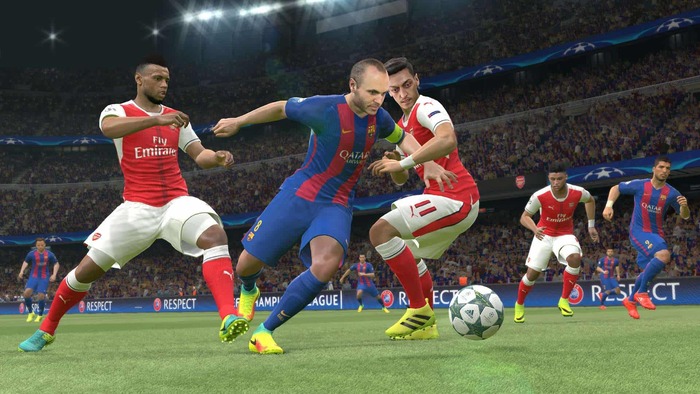Can Games Help Students Cope with Studies?

Computer games have been around for several generations already. However, it’s only recently we actually started to view gaming as something beyond simple entertainment. In fact, today, we know that can help students cope with their studies. Here’s how.
Stress Relief in Playful Worlds
Now, in the fast-paced world of studies, stress follows students like a shadow. Exams, assignments, the whole success pressure – it can get overwhelming. But here’s where games become your getaway. Students can dive into digital worlds, solve puzzles, wander through virtual places, or plan their moves and strategies. The intense focus needed during the game gives your brain a timeout, refreshing you for another round of studying.
Back to the books after a gaming session, everything suddenly feels doable. The stress relief from games isn’t just an escape. It’s like hitting a reset button, helping you concentrate better and keeping your sanity intact. It’s a break that feels more like a burst of fresh air, making your academic journey a tad more enjoyable.
Skills Outside the Screen
Games aren’t just about screens and buttons. They teach you real-life stuff. Think team games – they’re not just about winning but about teamwork and talking it out. In the gaming world, you learn to share ideas, work together, and tackle challenges. These skills aren’t just handy in games but are golden in real life, especially when you hit the teamwork scenes in your studies or future job.
And let’s not forget the brain workout games give you. Those complex scenarios? They’re like puzzles, making your brain sweat a bit. As you tackle them, you’re secretly getting better at figuring things out, making decisions, and being on top of your game. These skills turn into building blocks for facing real-world challenges.
The Classroom Game-Changer
Gamification is the future of classrooms and at-home learning. It’s like your teachers are turning lessons into games – quizzes, apps, and simulations. No more dull classes or textbooks only approaches. Today, it’s all about turning education into a fun, memorable adventure.
Not only does gamification make learning more fun, but it helps learners memorize and understand things better. Lessons aren’t just in textbooks anymore. They’re in challenges, digital adventures, and aha moments that make you get the subject better.
Feeling Accomplished
Games love to reward you. The reward systems in games, with points, levels, and achievements, translate seamlessly to academic victories. Imagine acing a quiz and earning points or unlocking a new level of understanding in a subject. This sense of accomplishment isn’t just confined to the virtual world. It translates to tangible confidence in academic pursuits. Small wins in games act as stepping stones, paving the way for tackling more significant challenges in studies.
Games instill a cycle of motivation, turning achievements into confidence boosts. This positive reinforcement is a powerful ally in the academic journey, making each accomplishment, whether in a game or a test, a celebration of progress and a reminder of your capabilities.
Juggling Play and Work
Balancing game time and work time can turn into a hustle. Too much gaming turns into procrastination, and that’s where it stops being of assistance to your learning. Games are study breaks, not the main event. Integrating them wisely into a routine is the key to extracting all available benefits without losing focus on the studies.
And here’s the kicker – games can be motivational. Knowing a gaming session waits after your study can make it more enjoyable and productive. It’s like a treat at the end of a hard day’s work.
Games and Social Skills
There’s another bonus in the gaming world – it’s a social hub. Multiplayer games aren’t just about competition – they’re about connecting with others. Games become platforms for forging connections, making each victory or defeat a shared experience that enriches your social skills in a unique, enjoyable way.
Whether strategizing in a team, celebrating victories, or discussing important students’ issues like “Is speedypaper reliable?” games provide a unique space to build companionship. This social aspect goes beyond the screen. It’s an essential tool in both academic and real-life situations that helps in forming connections, teamwork, and communication.

Unleashing Creativity Through Games
Here’s one more reason games are great for learning – they unleash your creative side. In games, you’re not just following rules. You’re creating strategies, designing characters, and solving problems in your unique way. This creativity spills over into your studies. Engaging with games transforms mundane tasks into creative ventures and imaginative journeys.
Essays become canvases for storytelling, math problems evolve into puzzles, and scientific concepts morph into imaginative experiments. Problem-solving is an art. Beyond academic benefits, games cultivate critical thinking, fresh perspectives, and expressive creativity. Games ignite that spark of imagination, making your academic journey not just about facts but about the thrill of creativity.
Final Thoughts
In the big world of studies, games aren’t your foes. They’re your friends. They bring more than just fun to the table. From stress relief and building real-world skills to boosting confidence and making lessons unforgettable, games have you covered.
So, the next time your studies feel like a mountain, take a break with a fun game of your choice. Whether it’s a quick round of an app or an intense gaming session, you might just find the perfect study companion. Games, with their mix of fun and learning, could be the secret sauce to turn your academic journey into an exciting quest. Embrace the playful side of learning, and let games be your buddies in the pursuit of knowledge.






